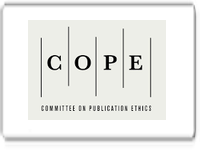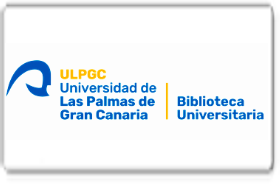Glucosuria renal y su relación con los tipos de diabetes, características clínicas y sintomatológicas
DOI:
https://doi.org/10.56048/MQR20225.8.3.2024.2063-2081Palabras clave:
cetoacidosis diabética; glucosa; orina; poliuria; hipoglucemiantesResumen
La glucosuria renal caracterizada por la presencia de glucosa en orina con niveles normales de glicemia, suele analizarse en pacientes diabéticos por la relación que tiene debido a su fisiopatología. El objetivo de la investigación fue analizar la glucosuria renal y su relación con los tipos de diabetes, características clínicas y sintomatológicas. Se empleó un estudio con diseño documental de tipo descriptivo narrativo, realizando la búsqueda de investigaciones en bases de datos como Google Académico, PubMed, Scielo, etc. Se identificó la presencia de glucosuria renal en los tipos de diabetes 1, MODY y diabetes tipo 2, siendo relacionada con medicamentos de inhibidores del cotransportador de sodio-glucosa (SGLT2), manteniendo la glucosa sérica en niveles óptimos. Se la evidenció en pacientes con cetoacidosis diabética euglucémica. Las características clínicas y sintomatológicas se las relaciona a síntomas propios de la enfermedad como la poliuria, otros analitos, obesidad y ante cetoacidosis diabética euglucémica; vómitos, dolor abdominal etc. Las principales pruebas para el diagnóstico fueron en tira reactiva, orina de 24 horas y el método de glucosa oxidada. Se concluye que, se presentó en pacientes con distintos tipos de diabetes, sin embargo, fue asociada a la medicación administrada como a una complicación. Es recomendable que se monitoree a estos pacientes, mantener su historial de salud actualizado ante la medicación, cuadro clínico y análisis de laboratorio. Es necesario más investigaciones en relación al tema, debido a la escasa información en grupos poblacionales de un mayor número.
Descargas
Métricas
Cited
DOI: 10.56048![]()
Citas
Adachi, J., Inaba, Y., & Maki, C. (2017). Euglycemic Diabetic Ketoacidosis with Persistent Diuresis Treated with Canagliflozin. Internal Medicine, 56(2), 187-190.
Andrade, J. A. M., Kang, H. C., Greffin, S., Garcia Rosa, M. L., & Lugon, J. R. (2014). Serum uric acid and disorders of glucose metabolism: The role of glycosuria. Brazilian Journal of Medical and Biological Research, 47(10), 917-923. https://doi.org/10.1590/1414-431X20143878
Arispe Quispe, M. S., Callizaya Laura, M. K., Laura Yana, A. A., Mendoza Mendoza, M. Z., Mixto Cano, J. L., Valdez Baltazar, B. D., Mendoza Ocampo, E., Magariños Loredo, W., & Torrico Arzady, B. (2019). Importancia del examen general de orina, en el diagnóstico preliminar de patologías de vías urinarias renales y sistémicas, en mujeres aparentemente sanas. Revista CON-CIENCIA, 7(1), 93-102.
Chen, J., Guo, H. J., Qiu, S.-H., Li, W., Wang, X.-H., Cai, M., Wang, B., Li, X.-N., & Sun, Z.-L. (2018). Identification of Newly Diagnosed Diabetes and Prediabetes Using Fasting Plasma Glucose and Urinary Glucose in a Chinese Population: A Multicenter Cross-Sectional Study. Chinese Medical Journal, 131(14), 1652-1657. https://doi.org/10.4103/0366-6999.235884
Chen, J., Guo, H., Yuan, S., Qu, C., Mao, T., Qiu, S., Li, W., Wang, X., Cai, M., Sun, H., Wang, B., Li, X., & Sun, Z. (2019). Efficacy of urinary glucose for diabetes screening: A reconsideration. Acta Diabetologica, 56(1), 45-53. https://doi.org/10.1007/s00592-018-1212-1
Chen, J., Liu, Y., Guo, H., Wang, B., Sun, Z., & Yu, J. (2020).
Urine Glucose Excretion Attenuates the Association Between Lipid Accumulation Product and Serum Uric Acid in Subjects with Prediabetes
. Diabetes, Metabolic Syndrome and Obesity, 13, 2297-2305. https://doi.org/10.2147/DMSO.S255908Chen, J., Qiu, S.-H., Guo, H.-J., Li, W., & Sun, Z.-L. (2018). Associations of Insulin Levels and Insulin Resistance With Urine Glucose Excretion Independent of Blood Glucose in Chinese Adults With Prediabetes and Newly Diagnosed Diabetes. Frontiers in Physiology, 9, 1666. https://doi.org/10.3389/fphys.2018.01666
Choi, A. Y., & Park, E. (2023). The impact of pediatric intensivists on the management of pediatric diabetic ketoacidosis in pediatric intensive care units. BMC Pediatrics, 23(1), 562. https://doi.org/10.1186/s12887-023-04398-z
Córdova-Pluma, V. H., Vega-López, C. A., Carrillo-Ramírez, S. del C., Ochoa-Salmorán, H., Martínez-Martínez, I., Delgado-Ayala, F., & Ortega-Chavarría, M. J. (2019). Cetoacidosis diabética euglucémica secundaria a la administración de inhibidor del SGLT2. Medicina Interna de México, 35(6), 958-963.
Correa, C., Vera Franco, V. J., Cáceres, L., Reyes, M., & Loor Morán, Y. Y. (2020). Cetoacidosis diabética euglucémica asociada al uso de inhibidores del cotransportador de sodio-glucosa 2. Revista Virtual de la Sociedad Paraguaya de Medicina Interna, 7(2), 124-130.
Egan, A. M., Cunningham, A., Jafar-Mohammadi, B., & Dunne, F. P. (2015). Diabetic ketoacidosis in the setting of HNF1A-maturity onset diabetes of the young. BMJ Case Reports, 2015, bcr2014209163. https://doi.org/10.1136/bcr-2014-209163
Erdoğan, A., Bozkurt, A., Altun, A., & Turan, A. (2020). Can we contribute to the diagnosis of diabetes and regulation of blood glucose by increasing the urologists’ awareness of glucosuria? Urologia, 87(4), 209-213. https://doi.org/10.1177/0391560320919593
Figueroa, V., Urroz-Cárcamo, K. M., & Arguedas-Chaverri, C. (2001). Importancia clínica de la proteinuria en diabetes mellitus. Acta Médica Costarricense, 43(2), 50-54.
Flores-Castillo, K. M., Chancafe-Rodriguez, J. G., & Silva-Diaz, H. (2022). Marcadores patológicos en el uroanálisis de pacientes de emergencia de un hospital de Jaén, 2019-2020: Pathological markers in the urinalysis of emergency patients from a hospital in Jaén, 2019-2020. Revista Experiencia en Medicina del Hospital Regional Lambayeque, 8(1), Article 1. https://doi.org/10.37065/rem.v8i1.594
Hashi, R., Fujiki, N., & Yagi, T. (2021). Tubular Injury Causing Protracted Glycosuria Following Withdrawal of a Sodium-Glucose Cotransporter 2 (SGLT2) Inhibitor: A Possible Role in the Development of Protracted Hypoglycemia and Ketoacidosis. The Tohoku Journal of Experimental Medicine, 255(4), 291-296. https://doi.org/10.1620/tjem.255.291
Hohendorff, J., Szopa, M., Skupien, J., Kapusta, M., Zapala, B., Platek, T., Mrozinska, S., Parpan, T., Glodzik, W., Ludwig-Galezowska, A., Kiec-Wilk, B., Klupa, T., & Malecki, M. T. (2017). A single dose of dapagliflozin, an SGLT-2 inhibitor, induces higher glycosuria in GCK- and HNF1A-MODY than in type 2 diabetes mellitus. Endocrine, 57(2), 272-279. https://doi.org/10.1007/s12020-017-1341-2
Hwang, Y.-C., Kim, J. H., Lee, B.-W., & Lee, W. J. (2019). A Lower Baseline Urinary Glucose Excretion Predicts a Better Response to the Sodium Glucose Cotransporter 2 Inhibitor. Diabetes & Metabolism Journal, 43(6), 898-905. https://doi.org/10.4093/dmj.2018.0257
Iseki, K., Konta, T., Asahi, K., Yamagata, K., Fujimoto, S., Tsuruya, K., Narita, I., Kasahara, M., Shibagaki, Y., Moriyama, T., Kondo, M., Iseki, C., Watanabe, T., & “Design of the Comprehensive Health Care System for Chronic Kidney Disease (CKD) Based on the Individual Risk Assessment by Specific Health Check”. (2018). Glucosuria and all-cause mortality among general screening participants. Clinical and Experimental Nephrology, 22(4), 850-859. https://doi.org/10.1007/s10157-017-1528-0
Jagła, M., Szymońska, I., Starzec, K., & Kwinta, P. (2018). Preterm Glycosuria—New Data from a Continuous Glucose Monitoring System. Neonatology, 114(1), 87-92. https://doi.org/10.1159/000487846
Kelmenson, D. A., Burr, K., Azhar, Y., Reynolds, P., Baker, C. A., & Rasouli, N. (2017). Euglycemic Diabetic Ketoacidosis With Prolonged Glucosuria Associated With the Sodium-Glucose Cotransporter-2 Canagliflozin. Journal of Investigative Medicine High Impact Case Reports, 5(2), 2324709617712736. https://doi.org/10.1177/2324709617712736
Lee, G.-H., An, S.-Y., Sohn, Y. B., Jeong, S.-Y., & Chung, Y.-S. (2013). An Unusual Presentation of Diabetic Ketoacidosis in Familial Hajdu-Cheney Syndrome: A Case Report. Journal of Korean Medical Science, 28(11), 1682-1686. https://doi.org/10.3346/jkms.2013.28.11.1682
Liman, M. N. P., & Jialal, I. (2024). Physiology, Glycosuria. En StatPearls. StatPearls Publishing. http://www.ncbi.nlm.nih.gov/books/NBK557441/
Miyauchi, M., Toyoda, M., & Fukagawa, M. (2017). Atypical Ketoacidosis and Protracted Hyperglycosuria after Treatment with Ipragliflozin, an SGLT2 Inhibitor. Internal Medicine (Tokyo, Japan), 56(13), 1673-1678. https://doi.org/10.2169/internalmedicine.56.7945
Moreno-Domínguez, Ó., Meneses-González, D., Villar, N. G.-P. de, & Morena, L. H. la. (2019). Cetoacidosis diabética en un paciente: Error diagnóstico y mala praxis. Revista Española de Casos Clínicos en Medicina Interna, 4(3), Article 3. https://doi.org/10.32818/reccmi.a4n3a13
Morillas Ariño, C., Solá, E., Górriz, J. L., & Coronel, F. (s. f.). Manejo de la hiperglucemia en enfermedad renal crónica. Nefrología, 1(2), 0.
Ning, P., Liu, S., & Cao, H. (2024). Rare, late onset of immune checkpoint inhibitor-induced type 1 diabetes mellitus in a patient with small-cell lung cancer treated with serplulimab: A case report and review of the literature. Journal of Medical Case Reports, 18(1), 51. https://doi.org/10.1186/s13256-023-04248-7
Novik A, V., García B, C., & Oliva I, D. (2017). Cetoacidosis diabética euglicémica asociada a inhibidor de cotransportador de sodio glucosa Tipo 2 en paciente con diabetes Mellitus Tipo 1. Revista médica de Chile, 145(3), 393-396. https://doi.org/10.4067/S0034-98872017000300015
Osaki, A., Okada, S., Saito, T., Yamada, E., Ono, K., Niijima, Y., Hoshi, H., & Yamada, M. (2016). Renal threshold for glucose reabsorption predicts diabetes improvement by sodium-glucose cotransporter 2 inhibitor therapy. Journal of Diabetes Investigation, 7(5), 751-754. https://doi.org/10.1111/jdi.12473
Ostos-Ruiz, A. I., Soto-Martín, M., Pérez-Aguilera, M., Concejo-Martínez, E., & Carrasco-Sánchez, F. J. (2018). Diabetes mellitus tipo MODY 1. Revista Española de Casos Clínicos en Medicina Interna, 3(1), Article 1. https://doi.org/10.32818/reccmi.a3n1a13
Ovsyannikova, A. K., Rymar, O. D., Shakhtshneider, E. V., Klimontov, V. V., Koroleva, E. A., Myakina, N. E., & Voevoda, M. I. (2016). ABCC8-Related Maturity-Onset Diabetes of the Young (MODY12): Clinical Features and Treatment Perspective. Diabetes Therapy: Research, Treatment and Education of Diabetes and Related Disorders, 7(3), 591-600. https://doi.org/10.1007/s13300-016-0192-9
Paz Zabala, A. R., Soliz Alconz, H. V., Claros Coca, Z., & Castro Soto, M. del R. (2015). Criptococosis meníngea asociada a Diabetes Mellitus tipo 2: Presentación de un caso en el Hospital Clinico Viedma. Cochabamba, Bolivia, 2015. Gaceta Médica Boliviana, 38(2), 58-61.
Pieber, T. R., Famulla, S., Eilbracht, J., Cescutti, J., Soleymanlou, N., Johansen, O. E., Woerle, H. J., Broedl, U. C., & Kaspers, S. (2015). Empagliflozin as adjunct to insulin in patients with type 1 diabetes: A 4‐week, randomized, placebo‐controlled trial (EASE‐1). Diabetes, Obesity & Metabolism, 17(10), 928-935. https://doi.org/10.1111/dom.12494
Qin, Y., Zhang, S., Cui, S., Shen, X., Wang, J., Cui, X., Zuo, M., Gao, Z., Zhang, J., Yang, J., Zhu, H., & Chang, B. (2021). High urinary excretion rate of glucose attenuates serum uric acid level in type 2 diabetes with normal renal function. Journal of Endocrinological Investigation, 44(9), 1981-1988. https://doi.org/10.1007/s40618-021-01513-8
Rangel-Coronado, R., Chávez-García, T., Mendoza-Zubieta, V., & Ferreira-Hermosillo, A. (2020). Diabetes del adulto de inicio juvenil: Reporte de un caso. Revista Médica del Instituto Mexicano del Seguro Social, 57(4), 252-258.
Restrepo, B. I., Pino, P. A., Zarate, I., & Mora-Guzman, F. (2013). Dipstick urinalysis for diabetes screening in TB patients. International health, 5(2), 157-159. https://doi.org/10.1093/inthealth/iht007
Sampani, E., Sarafidis, P., Dimitriadis, C., Kasimatis, E., Daikidou, D., Bantis, K., Papanikolaou, A., & Papagianni, A. (2020). Severe euglycemic diabetic ketoacidosis of multifactorial etiology in a type 2 diabetic patient treated with empagliflozin: Case report and literature review. BMC Nephrology, 21, 276. https://doi.org/10.1186/s12882-020-01930-6
Sands, A. T., Zambrowicz, B. P., Rosenstock, J., Lapuerta, P., Bode, B. W., Garg, S. K., Buse, J. B., Banks, P., Heptulla, R., Rendell, M., Cefalu, W. T., & Strumph, P. (2015). Sotagliflozin, a Dual SGLT1 and SGLT2 Inhibitor, as Adjunct Therapy to Insulin in Type 1 Diabetes. Diabetes Care, 38(7), 1181-1188. https://doi.org/10.2337/dc14-2806
Solis-Herrera, C., Daniele, G., Alatrach, M., Agyin, C., Triplitt, C., Adams, J., Patel, R., Gastaldelli, A., Honka, H., Chen, X., Abdul-Ghani, M., Cersosimo, E., Del Prato, S., & DeFronzo, R. (2020). Increase in Endogenous Glucose Production With SGLT2 Inhibition Is Unchanged by Renal Denervation and Correlates Strongly With the Increase in Urinary Glucose Excretion. Diabetes Care, 43(5), 1065-1069. https://doi.org/10.2337/dc19-2177
Storey, H. L., van Pelt, M. H., Bun, S., Daily, F., Neogi, T., Thompson, M., McGuire, H., & Weigl, B. H. (2018a). Diagnostic accuracy of self-administered urine glucose test strips as a diabetes screening tool in a low-resource setting in Cambodia. BMJ Open, 8(3), e019924. https://doi.org/10.1136/bmjopen-2017-019924
Storey, H. L., van Pelt, M. H., Bun, S., Daily, F., Neogi, T., Thompson, M., McGuire, H., & Weigl, B. H. (2018b). Diagnostic accuracy of self-administered urine glucose test strips as a diabetes screening tool in a low-resource setting in Cambodia. BMJ Open, 8(3), e019924. https://doi.org/10.1136/bmjopen-2017-019924
Veelen, A., Andriessen, C., Op den Kamp, Y., Erazo-Tapia, E., de Ligt, M., Mevenkamp, J., Jörgensen, J. A., Moonen-Kornips, E., Schaart, G., Esterline, R., Havekes, B., Oscarsson, J., Schrauwen-Hinderling, V. B., Phielix, E., & Schrauwen, P. (2023). Effects of the sodium-glucose cotransporter 2 inhibitor dapagliflozin on substrate metabolism in prediabetic insulin resistant individuals: A randomized, double-blind crossover trial. Metabolism: Clinical and Experimental, 140, 155396. https://doi.org/10.1016/j.metabol.2022.155396
World Health Organization. (s. f.). Diabetes. Recuperado 4 de mayo de 2024, de https://www.who.int/news-room/fact-sheets/detail/diabetes
Publicado
Cómo citar
Número
Sección
Categorías
Licencia

Esta obra está bajo una licencia internacional Creative Commons Atribución 4.0.
Los autores se comprometen a respetar la información académica de otros autores, y a ceder los derechos de autor a la Revista MQRInvestigar, para que el artículo pueda ser editado, publicado y distribuido. El contenido de los artículos científicos y de las publicaciones que aparecen en la revista es responsabilidad exclusiva de sus autores. La distribución de los artículos publicados se realiza bajo una licencia 
































































































